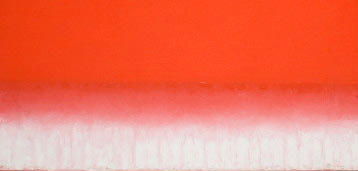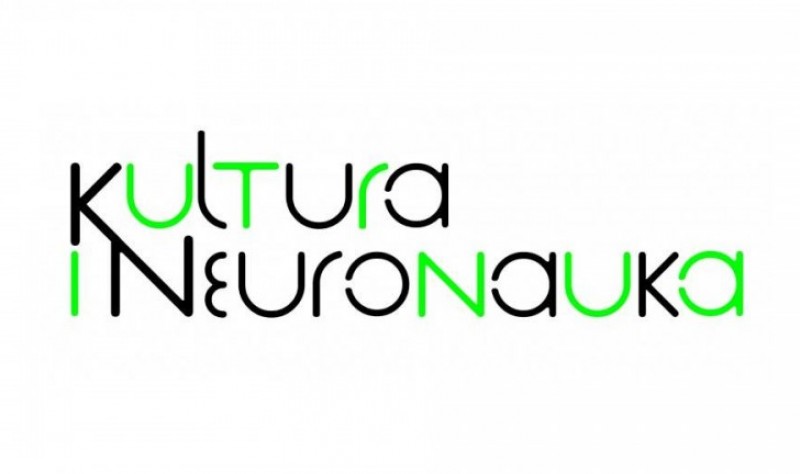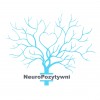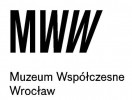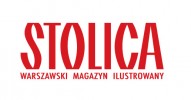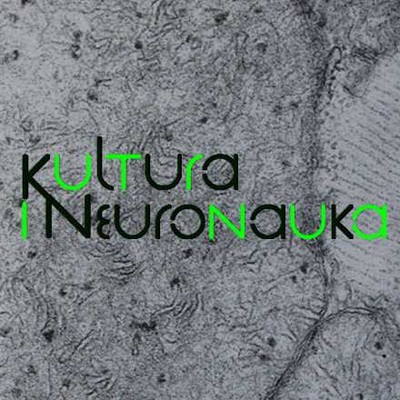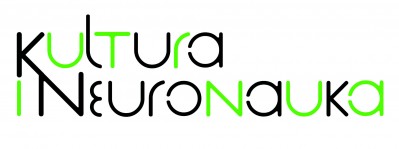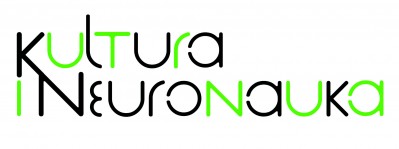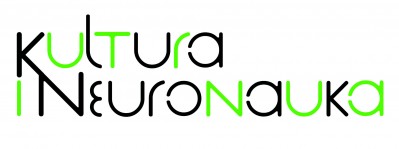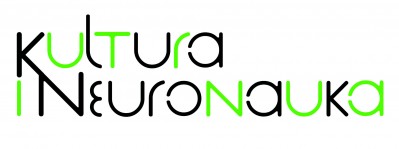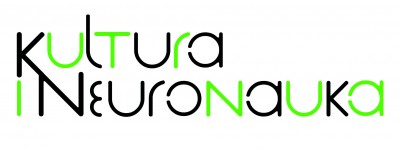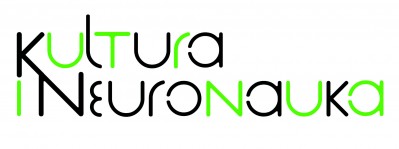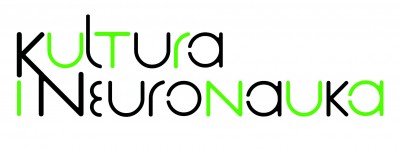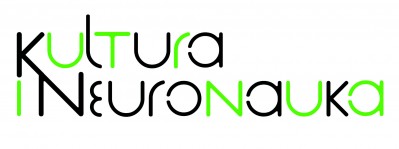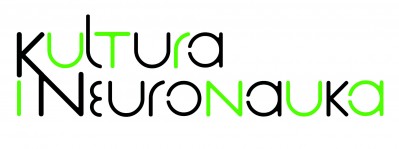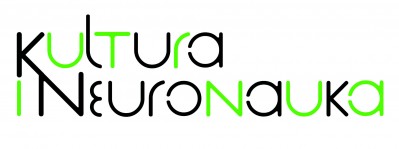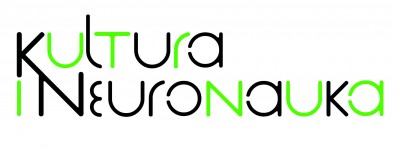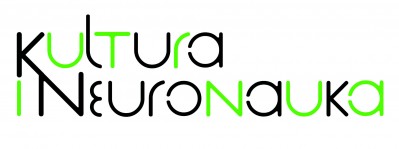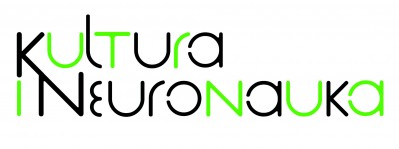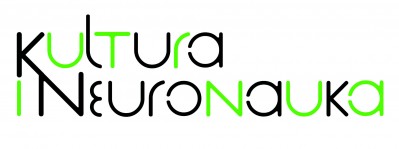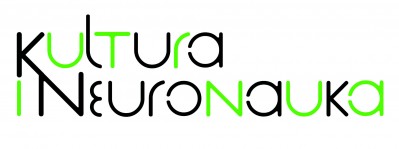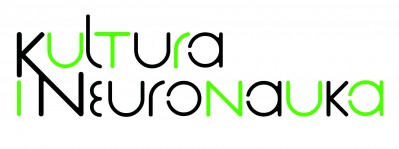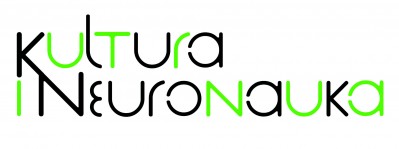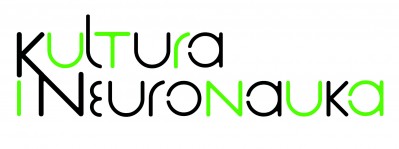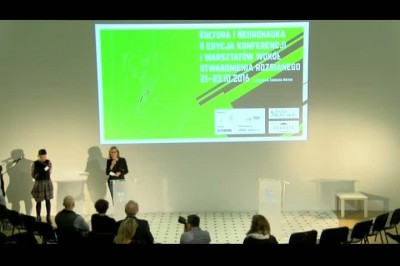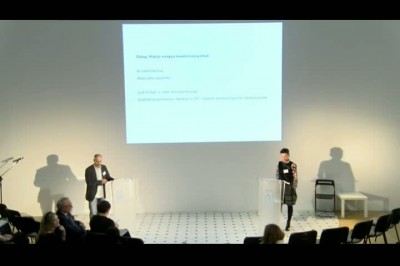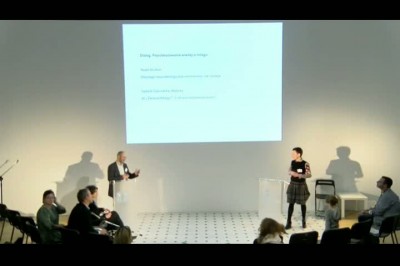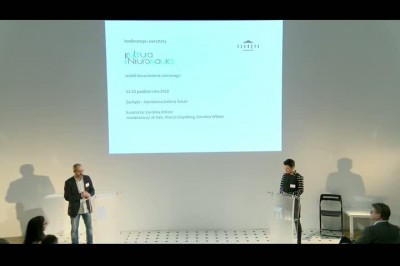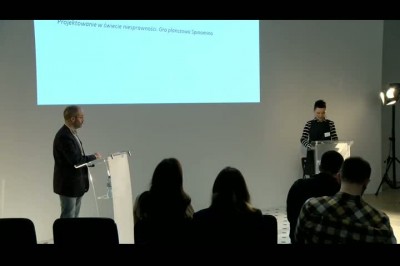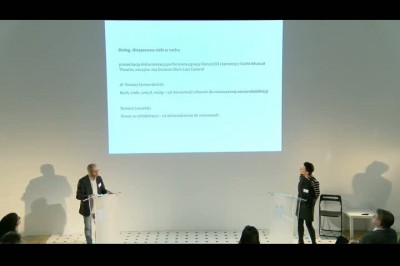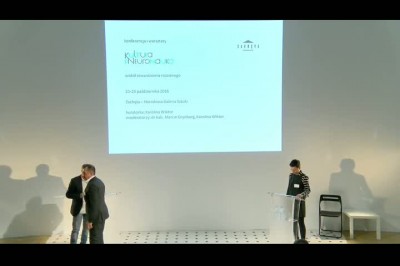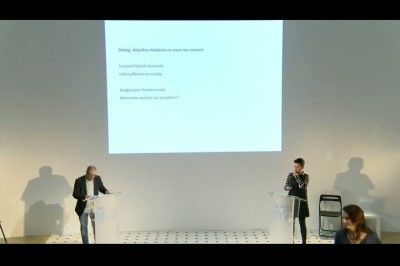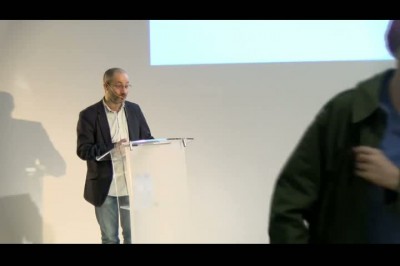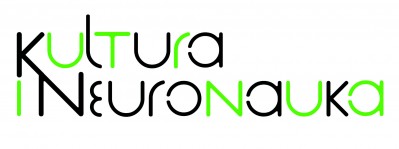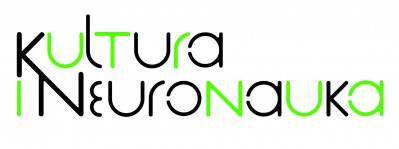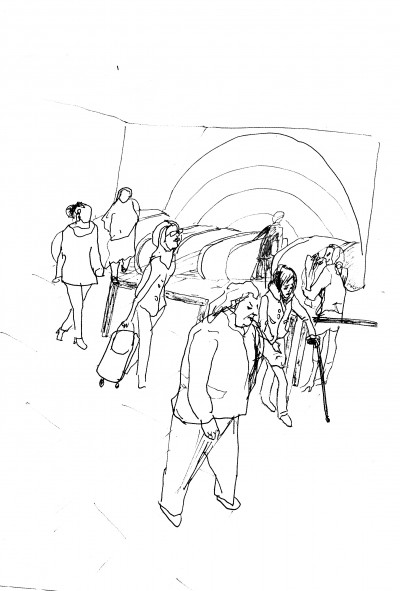Culture and Neuroscience
2nd edition
Zachęta – National Gallery of Art
free entry
curator: Karolina Wiktor
moderators: dr hab. Marcin Grynberg, Karolina Wiktor
collaboration: Julia Leopold, Marta Miś, Zofia Dubowska
Culture and Neuroscience around Multiple Sclerosis
Culture and Neuroscience (C&N) is a social campaign for intellectual and mental development regardless of health or profession. Its purpose is to bring closer two seemingly distant worlds – those of neuroscience and culture – to work together for neurological patients and their carers, who should be equal partners in both discussion and therapy.
How can we help? What we want to offer is knowledge, conveyed in the form of dialogue. Many of us would like to understand the nuances of the disease, get to know the Świat Mózgu [World of Brain] periodical, the Beautiful Brain project or the Spinomino board game, or to learn more about technological therapy aids. A meeting of artists, scientists and propagators of knowledge of the brain should reveal mutual inspirations and pique the audience’s curiosity, offering a possibility of development.
Culture and Neuroscience is also a presentation of the artistic work of neurological patients. The first edition, in 2014, was devoted to aphasia and, naturally, I became its protagonist. This year we are talking about multiple sclerosis and I’ve invited the participation of Iveta Pilařová, a Czech artist suffering from MS since she was 18. Her works get to the bottom of the disease, of the rationale of making art inspired by MS.
It is crucial for the conference to initiate a wide-ranging social dialogue with the representatives of culture and science, with both able and disabled persons. For this purpose, there will be two speaking platforms on stage, and during the 20-minute lectures audience members will be able to talk to the speakers.
Importantly, the 2016 conference is partnered with The NeuroPozytywni Foundation, The Polish Multiple Sclerosis Society, and the Citizens of Science.
It is my hope that this year’s edition will be as successful as last year’s one and will help us to understand that in order to help effectively, one needs to know how.
Karolina Wiktor
Show of Iveta Pilařová, 20-23.10.2016
21 October (Friday)
bottom-level exhibition rooms
free admission
conference translated into English
Understanding Incomplete Ability – Art vs. MS Neurological Disability
3 p.m.
conference opening: Hanna Wróblewska, Director, Zachęta – National Gallery of Art
Opening Dialogue. Looking, Understanding, Empathising
- Andrzej Potemkowski, PhD Hab., MD
Art and Multiple Sclerosis - Piotr Schollenberger, PhD
On Difference in Beauty. How Thought Becomes Art
4.15 p.m.
Dialogue. Between Attention and the Awareness of Art
- Iveta Pilařová PhD
My Body and Psyche - Alina Borkowska, PhD Hab., MD
Cognitive Dysfunctions and Depression in MS: Neurobiological and Therapeutic Aspects
5.30 p.m.
Dialogue. Popularising Knowledge of the Brain
- Noah Hutton
The Case against Neural Normality - Izabela Czarnecka-Walicka
In the ‘World of Brain’. On the Art of Asking Questions
7.30 p.m.
film screening: When I Walk, 2013, dir. Jason DaSilva, 144 min.
(free admission, multimedia room)
22 October (Saturday)
Cognitive-Technological Aspects Making Life Easier for Persons with MS
11 a.m.
opening of the 2nd day of the conference
film screening: Kładko Family, 2013, dir. Carlos Spottorno, 7 min.
- Heleny Kładko
12 a.m.
Dialogue. Is It Possible to Repair Cognitive Functions?
- Aneta Szymaszek, PhD
New Possibilities in Neural Rehabilitation: ‘Dr Neuronowski’ Therapeutic Programme - Konrad Kordas
Designing in a World of Disability. The Spinomino Board Game
1 p.m.
Dialogue. The Disabled Body in Movement
Dance 2XS & Karlin Musical Theatre performance documentation; music: Joy Division, She’s Lost Control, 5 min.
- Tomasz Komendziński, PhD
Movement, Body, Mind, Brain: From the Neuroscience of Health to Modern Neurorehabilitation - Tomasz Ciesielski
Dance in Rehabilitation: From Experience to Neuroscience
intermission
4 p.m.
Dialogue. The Disabled Body in an Era of Transhumanism
- Kazimierz Frączkowski, PhD Eng.
Telemedicine: Using Intelligent Mobile Movement Sensors and Interactive Computer Games in Telecare and Rehabilitation - Michał Klichowski, PhD
The Brain Entrapped: Transhumanistic Projects from the Perspective of Cognitive Neuroscience
5 p.m.
Dialogue. Working Together for Ourselves
- Urszula Pielach-Gemzała, Nowolipie Group
- Małgorzata Tomaszewska
Natural Reaction or Symptom?
6 p.m.
Dialogue. On Artistic and Cultural Barriers in Society. The Patient – Authority/Law Relationship
- Rafał Szymczak
Thirteen Reasons Why a Neurological Patient Must Become an Artist - Bartłomiej Lis, PhD
The Super-Museum: What Is It? A Short Story about the Acceptance of Deficit, Sensuality, and (Dis)ability
23 October (Sunday)
multimedia room
free admission
registration:
WORKSHOP PROGRAMME
11 a.m.
Michał Niewęgłowski
‘Quiet Mind’ – Relax and Know Thyself. Applications of Meditation in Everyday Situations
duration: approx. 1 hour
adult workshop
Note: for better results, we suggest abstaining from food for at least 2 hours prior to the workshop.
2 p.m.
Nowolipie Group
adult workshop
